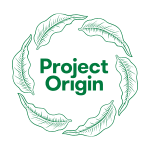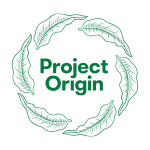News from Ethiopia: New processing and community projects
Several members of the Project Origin team were recently in Ethiopia, working on some exciting new experiments and processing techniques, as well as looking for ways to aid the local community.
On this trip to Ethiopia we have expanded on the groundwork begun in February this year. In our previous article on Ethiopia (which you can read in full here) we discussed the way coffees are sorted and graded, and then the way they are sold through the ECX trading system, a system which last season had no traceability of lots beyond their grade, process and region. But, we said, things are changing. And those changes from the Ethiopian government are starting to come through.
This season, coffee lots bought through the ECX will come with a lot number that tracks them back to the washing station they originated from. This means if you have a relationship with a washing station, not only can you trace lots they produce and buy them with full information about where they have come from, but you can now also collaborate with the owners of the station to influence their processes and, in Project Origin’s case, create entirely new processes and entirely new flavour experiences from Ethiopia.
The washing station we began our relationship with last year was ZB, short for Zeritu and Banchayehu, the names of the wife and daughter of the co-owner and founder, Bekena. The station is located in Masina town, in the Adola area of Sidamo Guji growing region.

Meseret Workneh and her husband Abraham introduced us to the co-owner of the station, Bekena, and this year we also met his nephew, Ayana. All of these people have been incredibly enthusiastic towards Project Origin’s vision of improving coffee quality, and improving the communities that our coffees come from. They have also welcomed the experimental processes we introduced and the strange equipment that comes with them, regardless of how crazy it seemed to them initially. Workers at the washing station also humbled us with their attention to detail for the new things we began requesting for Project Origin’s experimental lots.

We ran 15 experiments in total and we are excited to taste these once drying is complete and the coffees are rested, which we expect to be around the end of January. Of those 15 experiments, the ones that showed the most promise in the first two days of processing will be produced in quantities that are hopefully large enough for us to share with many customers across Australia and the world.
The experiments we ran included Whole Cherry Carbonic Maceration Washed (Hugh Kelly’s 2017 World Barista Championship coffee process), Whole Cherry Carbonic Maceration Natural (Sam Corra’s 2017 World Brewer’s Cup coffee process), originally both done with green tip geisha from Finca Deborah in Panama. We also ran the original (Pulped) Carbonic Maceration process that was Sasa Sestic’s 2015 WBC winning process, originally done on the Sudan Rume varietal from Finca Las Nubes in Colombia.

We are very grateful we had the opportunity to do this with our team in Ethiopia, and humbled by their shared enthusiasm for quality coffee – we can’t wait to introduce these coffees to the world! But, as you might know by now, quality is not the only thing that drives us. Project Origin’s other equally important value is community, because without the strength and sustainability of the coffee community we can’t keep searching for, creating and sharing quality coffee.
The ZB washing station is situated alongside the Hawata river, which is an ideal location for water access. However, during our time there Meseret and Bekena mentioned that there are many coffee farmers that are on the other side of that river and that there is currently no bridge nearby. To walk the long way to the Masina town, whether it be for medical attention, to delivery coffee cherries picked that day, or to buy grocery items would take about 2 hours on foot, a trip that could more than halve if they had a bridge. The alternative is to wade through the water, which depending on the season and the rainfall varies from knee deep to chest deep and is constantly moving, making it quite dangerous or to walk to the nearest town on the other side, Tora, which is similarly about 2 hours away on foot.

Project Origin has committed to fund the building of a bridge and will ask Bekena to hire local contractors to perform the work. In this way both the consuming and producing communities can benefit from our work with ZB washing station; Project Origin and our customers get the benefit of the impressive coffees that come from here, and the local community gets an improvement to their lifestyle with easier access to the Masina town and to the markets or stations they can sell their coffees to.
In early February Project Origin will be visiting Ethiopia again, this time to cup and source our coffees for the year. If you are looking for coffees for single origin, blending or competition purposes you can let us know and will keep you in mind when we have selected our lots.

